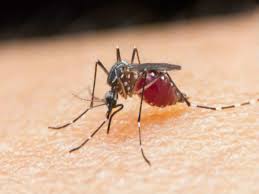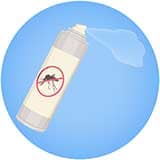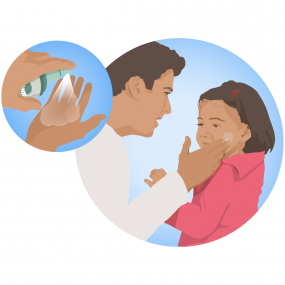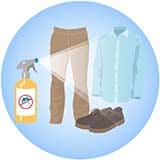
KNOX CO. – For the first time this year, area mosquitoes have tested positive for the West Nile Virus, according to the Knox County Health Department.
West Nile Virus is a disease spread through mosquito bites.

West Nile virus (WNV) is the leading cause of mosquito-borne disease in the continental United States. It is most commonly spread to people by the bite of an infected mosquito. Cases of the virus occur during mosquito season, which starts in the summer and continues through fall. There are no vaccines to prevent or medications to treat the virus in people.
Fortunately, most people infected with the virus do not feel sick. About one in five people who are infected develop a fever and other symptoms. About one out of 150 infected people develop a serious, sometimes fatal, illness.
You can reduce your risk of the virus by using insect repellent and wearing long-sleeved shirts and long pants to prevent mosquito bites.
Protect Yourself and Your Family from Mosquito Bites

Use insect repellent
Use Environmental Protection Agency (EPA)-registered insect repellents with one of the active ingredients below. When used as directed, EPA-registered insect repellents are proven safe and effective, even for pregnant and breastfeeding women.
- DEET
- Picaridin (known as KBR 3023 and icaridin outside the US)
- IR3535
- Oil of lemon eucalyptus (OLE)
- Para-menthane-diol (PMD)
- 2-undecanoate
Find the right insect repellent for you by using EPA’s search tool.
Tips for babies and children

- Dress your child in clothing that covers arms and legs.
- Cover strollers and baby carriers with mosquito netting.
- When using insect repellent on your child:
- Always follow label instructions.
- Do not use products containing oil of lemon eucalyptus (OLE) or para-menthane-diol (PMD) on children under 3 years old.
- Do not apply insect repellent to a child’s hands, eyes, mouth, cuts, or irritated skin.
- Adults: Apply insect repellent onto your hands and then apply it to a child’s face.
Tips for everyone
- Always follow the product label instructions.
- Reapply insect repellent as directed.
- Do not apply repellent on the skin under clothing.
- If you are also using sunscreen, apply sunscreen first and insect repellent second.
Natural insect repellents (repellents not registered with EPA)
- We do not know the effectiveness of non-EPA-registered insect repellents, including some natural repellents.
- To protect yourself against diseases spread by mosquitoes, CDC and EPA recommend using an EPA-registered insect repellent.
- Choosing an EPA-registered repellent ensures the EPA has evaluated the product for effectiveness.
- Visit the EPA website to learn more.

Wear loose-fitting, long-sleeved shirts and pants
Treat clothing and gear
- Use 0.5% permethrin to treat clothing and gear (such as boots, pants, socks, and tents) or buy permethrin-treated clothing and gear.
- Permethrin is an insecticide that kills or repels mosquitoes.
- Permethrin-treated clothing provides protection after multiple washings.
- Read product information to find out how long the protection will last.
- If treating items yourself, follow the product instructions.
- Do not use permethrin products directly on the skin.
- Watch the video, What You Need to Know About Permethrin.
Take steps to control mosquitoes indoors and outdoors
- Use screens on windows and doors. Repair holes in screens to keep mosquitoes outdoors.
- Use air conditioning, if available.
- Stop mosquitoes from laying eggs in or near water.
- Once a week, empty and scrub, turn over, cover, or throw out items that hold water, such as tires, buckets, planters, toys, pools, birdbaths, flowerpots, or trash containers.
- Check for water-holding containers both indoors and outdoors.



